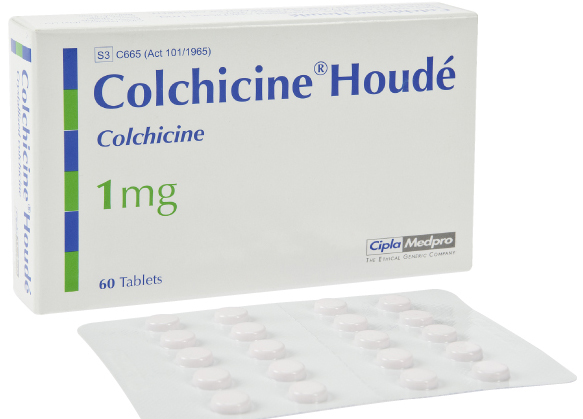What is bumetanide?
INDICATIONS :
- It is indicated for the treatment of edema associated with congestive heart failure, hepatic and renal disease, including the nephrotic syndrome.
- It is also used to controls high blood pressure but does not cure it.
How does bumetanide work?
MECHANISMS OF ACTION :
- It is a loop diuretic with a rapid onset and short duration of action.
- It causes the kidneys to get rid of unneeded water and salt from the body into the urine.
- It inhibits sodium reabsorption in the ascending limb of the loop of Henle during hydration and hydropenia.
- It blocks chloride reabsorption in the ascending limb of the loop of Henle.
- It is somewhat more chloruretic than natriuretic.
- Potassium excretion is also increased by bumetanide, in a dose-related fashion.
How is bumetanide taken?
ROUTE OF ADMINISTRATION :
- It can be administered orally and parenterally (intravenous or intramascular).
- However, it is only administered parenterally to patients in whom gastrointestinal absorption may be impaired or in whom oral administration is not practical. Parenteral treatment should be terminated and oral treatment instituted as soon as possible.
Is there any contraindication?
CONTRAINDICATIONS :
- It is contraindicated in anuria ( passage of less than 50 ml of urine in a day, often caused by failure in the function of kidneys. ).
- Although bumetanide can be used to induce diuresis in renal insufficiency, any marked increase in blood urea nitrogen or creatinine, or the development of oliguria during therapy of patients with progressive renal disease, is an indication for discontinuation of treatment with bumetanide.
- It is also contraindicated in patients in hepatic coma or in states of severe electrolyte depletion until the condition is improved or corrected.
- It is contraindicated in patients hypersensitive to this drug.
Are there any possible side effects?
SIDE EFFECTS :
(i) Most common possible side effects :
- muscle cramps
- dizziness
- hypotension
- headache
- nausea
- encephalopathy (in patients with preexisting liver disease)
- serious skin reactions (i.e., Stevens-Johnson syndrome, toxic epidermal necrolysis)
(ii) Less common possible side effects :
- impaired hearing
- itchiness
- electrocardiogram changes
- weakness
- hives
- abdominal pain
- arthritic pain
- musculoskeletal pain
- rash
- vomiting
What precautions are necessary?
PRECAUTIONS :
Drug Interactions :
(i) Drugs With Ototoxic Potential ( damage to the ear, specifically the cochlea or auditory nerve and sometimes the vestibular system)
- Especially in the presence of impaired renal function, the use of parenterally administered bumetanide in patients to whom aminoglycoside antibiotics are also being given should be avoided, except in life-threatening conditions.
- There has been no experience with the concurrent use of bumetanide with drugs known to have a nephrotoxic potential. Therefore, the simultaneous administration of these drugs should be avoided.
- Lithium should generally not be given with diuretics because they reduce its renal clearance and add a high risk of lithium toxicity.
- Pretreatment with probenecid reduces both the natriuresis and hyperreninemia produced by bumetanide. This antagonistic effect of probenecid on bumetanide natriuresis is not due to a direct action on sodium excretion but is probably secondary to its inhibitory effect on renal tubular secretion of bumetanide. Thus, probenecid should not be administered concurrently with bumetanide.
- Indomethacin blunts the increases in urine volume and sodium excretion seen during bumetanide treatment and inhibits the bumetanide-induced increase in plasma renin activity. Concurrent therapy with bumetanide is thus not recommended.
- Bumetanide may potentiate the effect of various antihypertensive drugs, necessitating a reduction in the dosage of these drugs.
Pregnancy and breastfeeding:
- There are no adequate and well-controlled studies in pregnant women. A small investigational experience in the United States and marketing experience in other countries to date have not indicated any evidence of adverse effects on the fetus, but these data do not rule out the possibility of harmful effects. Bumetanide should be given to a pregnant woman only if the potential benefit justifies the potential risk to the fetus.
- It is not known whether this drug is excreted in human milk. As a general rule, nursing should not be undertaken while the patient is on bumetanide since it may be excreted in human milk.
WARNING :
Bumetanide is a potent diuretic which, if given in excessive amounts, can lead to a profound diuresis with water and electrolyte depletion. Therefore, careful medical supervision is required, and dose and dosage schedule have to be adjusted to the individual patient's needs.
References :
1. Bumetanide by Validus Pharmaceuticals LLC
2. Bumetanide by Medline Plus














































